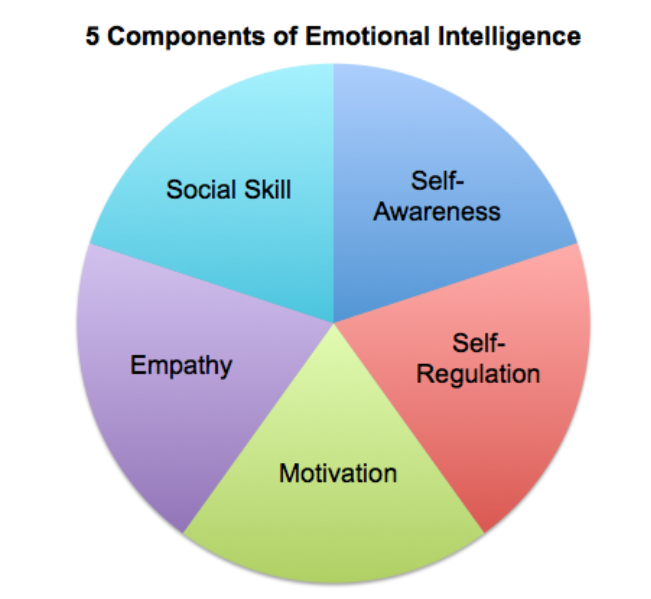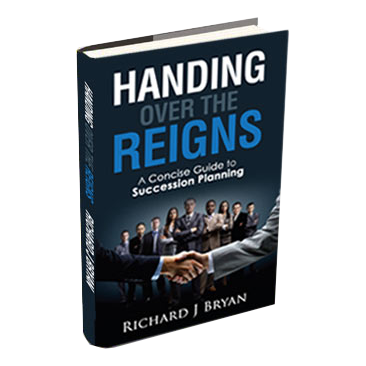The concept of Emotional Intelligence (EI), also referred to as Emotional Quotient (EQ), has been gaining traction since the mid-nineties, when Daniel Goleman’s eponymous book first began to raise eyebrows in corporate circles as well as on the leadership keynote speaker circuit. Goleman’s general hypothesis: that a person’s EQ (the ability to relate to people on an emotional level, both in the office and the outside world) was likely to be a greater indicator of professional success than his or her IQ.
“In a study of skills that distinguish star performers in every field from entry-level jobs to executive positions, the single most important factor was not IQ, advanced degrees, or technical experience, it was EQ. Of the competencies required for excellence in performance in the job studies, 67% were emotional competencies.” —Daniel Goleman
While some of Goleman’s initial research methods garnered criticism from the scientific community, subsequent study supports his initial theories—and the “big idea” continues to resonate. Said Dave Lennick, Executive VP for American Express Financial Advisers, “Emotional competence is the single most important personal quality that each of us must develop. Only through managing our emotions can we access our intellect and our technical competence. An emotionally competent person performs better under pressure.”
For Some, A Difficult Shift in Thinking
Emotional Intelligence isn’t exactly rocket science—its five components, below, are fairly intuitive—but Goleman’s early detractors tended to dismiss its “touchy-feely” tendencies…especially when compared to traditional indicators of corporate success like having the “right” educational background, work experience or technical expertise. In my early days on leadership keynote speaker circuit, my clients showed some resistance to these ideas as well. What the movement has gradually unveiled, however, is the fact that the best business pedigree in the world won’t make a leader (or even a great lower-level employee) out of somebody who doesn’t have empathy or self-awareness.

Source: “What Makes a Leader?” Daniel Goleman for HBR
EI Gains Traction With Decision-Makers
By 2011, the value of Emotional Intelligence had made itself apparent to the HR community; in a survey conducted that year by CareerBuilder, 71% of hiring managers said they valued EQ over IQ, and 75% said they were more likely to promote an employee a high-EI employee. Today, EI is not only a legitimately recognized “job skill”—according to the World Economic Forum’s Future of Jobs Report, it’s poised to become one of the top 10 job skills by 2020.
So how does Emotional Intelligence translate into job performance? Multiple studies and anecdotal reports have shown people of high EI to be model employees, possessing the ability to handle a wide range of professional situations with grace. In general, hiring managers cite high-EQ employees for their superior performance in conflict resolution, coping with high-pressure situations, cooperating with people from diverse backgrounds and skill sets, listening, receiving feedback and thoughtful decision making.
Case Study: The Inimitable Jean
My personal experience proves this out as well, both with people I’ve met in my travels as a leadership keynote speaker and as a hands-on leader myself. Case in point: Jean, my unparalleled assistant for the past 24 years. Despite a limited formal education (she left school at 16 and went to secretarial school before starting her first job) she is without doubt one of the smartest and best employees I have ever had.
Jean is hardworking, streetwise and experienced in her role as well as in life—but what makes her a truly exceptional assistant is her emotional intelligence. She has great judgment, and always uses her initiative to anticipate potential problems and prevent them before they ever happen (or at least before they get to me). She can communicate with people at every level, from building contractors to bank presidents, adapting her language to meet people on common ground. Now 68, Jean has announced her plans to retire next year, and my succession planning process will obviously be heavily weighted towards EQ.
How Does EQ Apply to Leadership?
Using Jean as our model, it’s easy to see how these basic principles apply to leadership—where all of these so-called “soft” skills and empathetic traits are encouraged to flourish at scale. At arm’s length, the makings of a high-EQ employee are also the hallmarks of a great leader. In recent analysis of more than 500 senior executives, international search firm Egon Zehnder International found that high-EQ leaders were more likely to succeed than those with high intelligence (IQ) or impressive experience.
The more cultural and institutional authority a high-EQ leader has, the more impact his or her abilities can have on the organization as a whole. And it’s something that comes up again and again in my travels as a leadership keynote speaker: great leaders beget not only happy, productive employees, but also the next generation of great leaders! And it all starts with a little bit of self-awareness. Below, I’ve compiled my favorite books on the subject of EI, as well as a few free online assessments to get you started.
REQUIRED READING:
An exploration of the top EQ factors that drive success
across multiple industries, roles and personalities.
The Language of Emotional Intelligence
A relatable breakdown of the five basic tools
that define EQ, and how to apply them to your life.
A great primer on EQ, with an online baseline
assessment step-by-step self-improvement regimen.
Working with Emotional Intelligence
Goleman’s best—including case studies of EI wins,
losses and reversals from 500 global organizations.
Coaching for Emotional Intelligence
Thoughtful and strategic coaching discussion of EI
coaching challenges, for forward-thinking managers.
FREE ONLINE EI ASSESSMENTS:
Institute of Health and Human Potential (about 5 minutes)
Psychology Today (about 45 minutes)
How Emotionally Intelligent Are You?
Mind Tools (about 5 minutes)
Related Topics:
How Trust Can Make (or Break) Your Career


